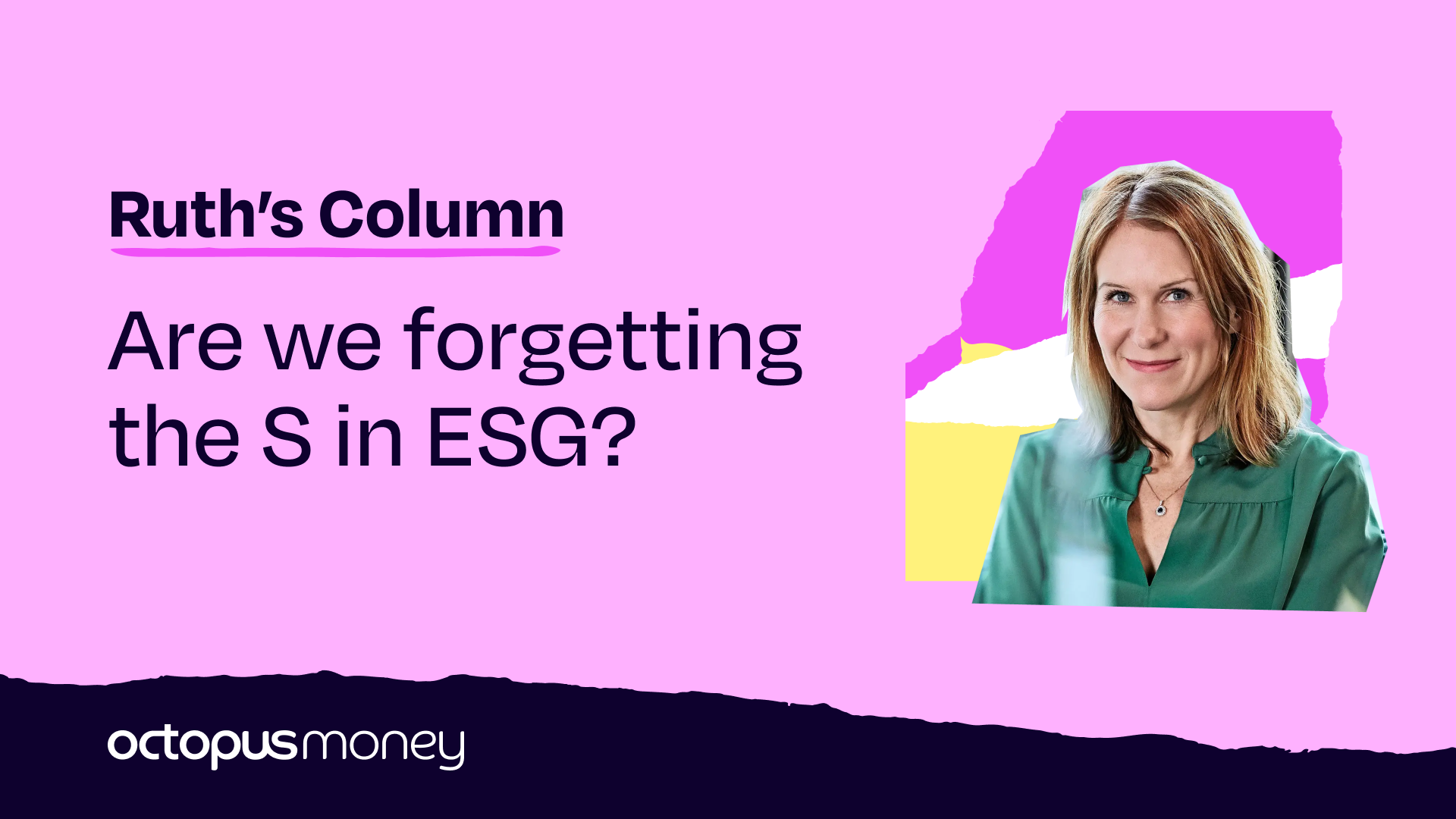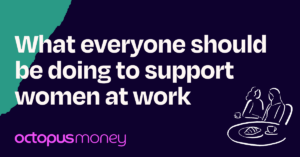Ruth Handcock – CEO, Octopus Money
Where do you think the UK ranks on social mobility?
Would you guess that only the U.S. and Switzerland have lower social mobility than the UK, amongst developed countries? (Goldman Sachs)
In fact, a quarter of young adults in the UK will inherit more from their parents than from all the work they’ll do in their entire lifetime! (Tembo Money)
This adds stress to a generation already facing huge financial pressures in terms of home ownership and retirement. Drinking fewer lattes and cancelling streaming subscriptions aren’t going to fix this.
It’s time to focus on the S in ESG.
But before we do that, let’s remember the E. The global climate crisis is without a doubt the biggest threat facing humanity. Our very survival depends on it.
We’ve seen waves of action as a result – from awareness of the problem (I still remember being obsessed with CFCs as a schoolkid), to government action (net zero targets), to private companies seeing the commercial opportunity in providing climate sustainable solutions. Octopus Energy has been leading from the front here, and they’ve achieved household brand recognition and become a commercial success story because of it.
Now climate change is part of the mainstream. Big banks in the UK are expected to report on climate risk in their books just as they are with other risk factors. It gives us an interesting insight into the maturity curve of how we tackle slow-burn crises. But while the social mobility crisis in the UK may be a slow burn, the urgency to act is increasing.
So how do we bring this level of awareness and action to the social mobility crisis?
My prediction is that we’ll see the same focus – reputationally, legislatively and regulatory – on social responsibility (or the S in ESG) over the coming decade as we saw on E (environmental) over the last decade. I think capital markets will be as full of questions about social responsibility as it relates to society as they have been about the climate. Only then will we see a sustained push for change.
If we truly believe that diversity of thought in organisations delivers better outcomes for customers and shareholders, we need to obsess over why everything we’ve tried so far hasn’t worked. And perhaps then we’ll be able to solve the question of why it is so hard for people to change their social status in the UK, especially when compared to other developed countries.
While the causes may be complex, I think there is one important thing we’ve missed.
Our attitudes to money. Which we don’t talk about. At all.
People without a financial safety net – which is more about your attitude to and understanding of money than the actual volume of cash – don’t take (or simply aren’t able to take) career risks, find it harder to balance work and caring responsibilities, and generally end up making less financial and career progress over their lifetime.
But we can change that. By giving people someone to talk to about money. By giving people the roadmap they need to achieve their biggest goals. By giving people all the tools they need to feel empowered to take control of their finances.
If you’re passionate about this topic like me, please get in touch. I’m building a cross-sector working group because this crisis needs leaders across the economy to bring their passion, expertise and ideas.


